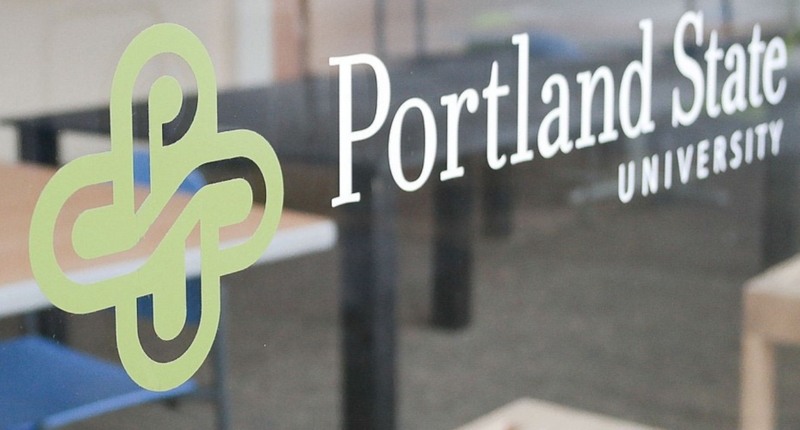Portland State University (PSU) shut down its China-backed Confucius Institute (CI) in January 2021, due to financial, staffing, and operational reasons. Shortly after, PSU formed a collaboration with Nanjing University of Posts and Telecommunications (NJUPT) to open the Portland Institute, NJUPT. The Chinese Communist Party has declared that CIs are an essential part of China’s overseas propaganda system. The CIs are now heavily criticized for their role in espionage, which has led to the loss of American intellectual property and technology. Chinese students and researchers are advised against participating in defense applications by the FBI, which has warned US colleges of the dangers of Chinese nationals. Chinese universities’ relationships with the military are being closely scrutinized, and universities must be cautious about their ties with these institutions. NJUPT is one such Chinese university that works with China’s People’s Liberation Army on projects related to signals intelligence and cyberwarfare. Despite warnings of potential security risks, PSU’s collaboration with NJUPT raises serious concerns.
PSU’s Confucius Institute 2.0: The Portland Institute, NJUPT
Portland State University (PSU) closed its China-backed language program, Confucius Institute (CI), in January 2021, citing financial, staffing, and operational reasons. While PSU noted that it intended to “expand direct academic ties” with China, it opened a new language program, the Portland Institute, NJUPT, in partnership with China’s Nanjing University of Posts and Telecommunications (NJUPT). The CI is a Chinese soft power initiative that provides language instruction in American schools, universities, and K-12 school districts, funded by Beijing. However, CIs are part of China’s espionage system and play a significant role in the loss of American intellectual property and technology.
American universities often lack the security and safeguards that government agencies and private companies have. As a result, foreign adversaries are interested in acquiring their scientific and technological breakthroughs, which have dual-use importance for the economy and military. Thus, American universities are a juicy target for foreign adversaries.
[Related: “Improving Higher Ed Through Better Open-Records Laws”]
The Threat Posed by CIs to American Standing
Federal officials have acknowledged the threat posed by Confucius Institutes (CIs) to America’s standing. In 2018 and 2019, the Federal Bureau of Investigation (FBI) warned multiple US colleges about the risks of Chinese students and researchers in programs involving “defense applications.” The FBI director warned that China could access science and technology by establishing programs in US universities. The former Secretary of State, Mike Pompeo, accused US colleges of jeopardizing American science and technology by taking Chinese funding and collaborating with China.
Portland State University (PSU) closed its CI due to financial, staffing, and operational reasons. However, the day before the announcement of the closure, the PSU President Stephen Percy wrote to the Chinese International Education Foundation to reassert the university’s ties to China. PSU replaced its CI with a collaborative effort in science and technology, raising concerns about the loss of American intellectual property and technology.
PSU’s Ties with Chinese Universities Raise Questions
PSU’s ties to Chinese universities have raised serious questions about American intellectual property and technology security. After closing its Confucius Institute, PSU maintained or forged new ties with China. Senator Marco Rubio’s office warned PSU’s President about Soochow University’s role in helping China develop “classified defense research and training” and its work with missile manufacturing company, Changfeng Science and Technology Industry Group. Soochow University has one of the highest concentrations of defense-related programs for any Chinese university.
PSU replaced its Confucius Institute with a cooperative school focused on science and technology with Nanjing University of Posts and Telecommunications (NJUPT), one of the top defense-related universities in China. PSU’s Department of Electrical and Computer Engineering celebrated its first year of collaboration with NJUPT in 2023. The academic department heads of relevant colleges of both universities were present at the virtual signing.
PSU’s Ties with Chinese Military-Linked University Raise National Security Concerns
Nanjing University of Posts and Telecommunications (NJUPT) is among the top Chinese universities connected to Beijing’s defense sector. The Australian Strategic Policy Institute (ASPI) reported that 16% of NJUPT’s 2018 graduates entered the Chinese defense sector, and the college works with China’s People’s Liberation Army on projects related to signals intelligence and cyberwarfare. Georgetown University’s research also corroborated ASPI’s findings, noting that NJUPT is among a number of Chinese institutions devoted to helping Beijing acquire technology for “military-civil fusion.”
Despite being warned about ties to Chinese universities with national security risks, Portland State University (PSU) quickly forged a new partnership with NJUPT, raising questions about its determination to partner with Chinese universities connected to Beijing’s defense sector. PSU’s move is a matter of concern for American national security.
Don’t miss interesting posts on Famousbio
